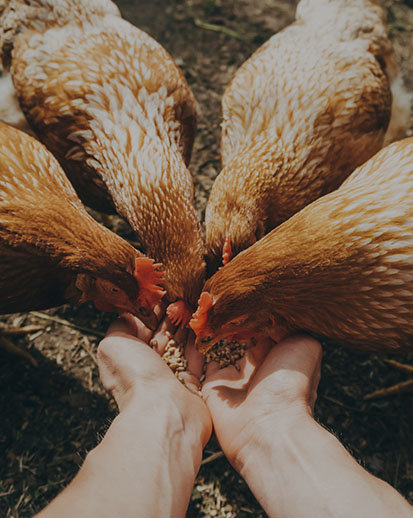Innovation and R&D in Animal Nutrition & Health
Following the successful 2021 launch of Sustell™, the first of our Precision Services, we continue to focus on the development of a digital farm ecosystem that taps into the farm-level data stream. To maintain its contribution to meeting the nutrition requirements of the world’s rapidly growing population, animal farming must become more efficient and sustainable while at the same time enabling higher levels of animal welfare and constituting a profitable endeavor for farming families and communities worldwide. Precision animal farming facilitates more efficient use of resources, reduces environmental impact, improves animal welfare management, and enhances farm-level operations. By leveraging precision farming technologies, the industry can gain deeper and broader insights into the opportunities and challenges it faces and can steer toward more accurate interventions.
In building our Precision Services, we are exploring and developing technologies such as artificial intelligence and deep learning systems that help to correlate the animal and environmental input into the ecosystem with the corresponding output with a view to maximizing health, nutrition and environmental value creation. Our Precision Services open up new horizons in farm-level transparency and data management, supporting areas of challenge and opportunity for farming operations.
In 2022, we accelerated the customer adoption of our Precision Nutrition platform, Verax™. The product of a partnership with Flagship Pioneering (MA, USA), Verax™ is a decision-making tool that enables data-driven optimization of nutrition in order to improve the health, performance and environmental footprint of livestock. It uses algorithms, blood biomarkers, data from trials, and scientific papers to provide nutritional recommendations on how to prevent diseases and optimize nutrition in poultry, swine and ruminants.
Our rich and diverse portfolio of innovation requires our research centers to develop state-of-the-art capabilities. In addition to developing the expertise of our people, we also invested on next-generation omics with new mass spectrometers and advanced in silico and in vitro modeling in our Research Centers in Tulln (Austria) and Bazhou (Hebei province, China). Additional investments were made in digitalization of our trial facilities for animals and environmental data collection. While those investments put DSM at the forefront of a digital-enabled science and microbiome technologies, they also expand our portfolio of services while translating the science into tangible outcomes in health, nutrition and sustainability for livestock producers.




